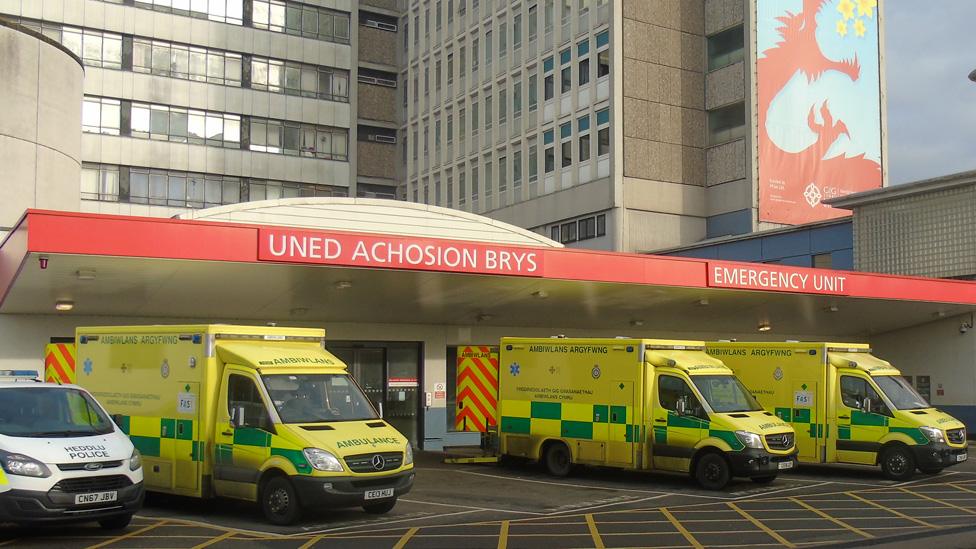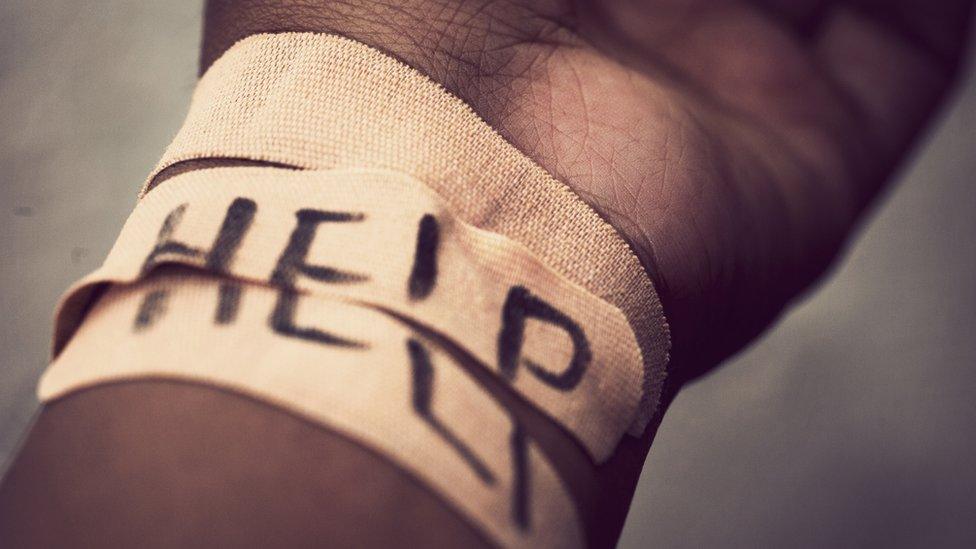Ambulance staff training call to deal with self-harm incidents
- Published

The Welsh Ambulance Service said staff need more training to deal with self-harm incidents
The amount of self-harm incidents dealt with by the Welsh Ambulance Service "far exceeds" major traumas and cardiac arrests, it has said.
Figures show that the number of suicides in Wales is four times as high as those killed on the roads.
Representatives told AMs that ambulance staff need further training to deal with these incidents.
Meanwhile, Network Rail said almost 5% of suicides every year happen on the rail network.
As an assembly committee prepared to discuss the matter on Thursday, the Welsh Ambulance Services NHS Trust said in written evidence that "caring for patients with a mental health problem demands a particular set of skills".
Recent research from the ambulance service suggested that:
5% of emergency calls relate to self-harm, a figure that "far exceeds calls for major trauma and cardiac arrest combined"
That one in every 100 people appearing in hospital following self-harm take their own life within a year, with 5% doing so within a decade
That the use of suicide risk prediction scores, commonly used in emergency care, are a "waste in valuable resources"
That some patients "avoid services" for fear of being detained under the Mental Health Act
The ambulance service said it responds "to significant numbers of people who self-harm or have thoughts of suicide, and are therefore key to improving care and preventing suicide".
"Tailored, context-specific and multi-professional education and training should be developed for ambulance staff in order to give greater understanding of self-harm, suicide prevention and improve competence and confidence," the evidence said.
An evaluation is also needed of the "support mechanisms for ambulance staff" who deal in suicide and self-harm cases, the service added.

The Welsh Ambulance Service said it responds to significant numbers of people who self-harm
Giving evidence to the same committee, Network Rail said each suicide on the rail network costs the industry an average of £230,000, and more than 36 hours of delays.
Staff who witnessed such incidents also spent an average of 29 days off work, with some "never returning" following the trauma.
The company said each incident was a "tragic event", and that the industry had to takes steps such as improving security and erecting signs around tracks to try and "influence the behaviour" of suicidal individuals.
However, the organisation admitted that the problem is "beyond the industry's gift to solve".
Their recommendations included providing more training to health sector staff, and raising awareness of mental health issues among young people.

Details of organisations offering information and support with mental health are available at bbc.co.uk/actionline, or you can call for free, at any time, to hear recorded information on 08000 564 756.
- Published23 May 2018

- Published21 March 2018

- Published13 February 2018
